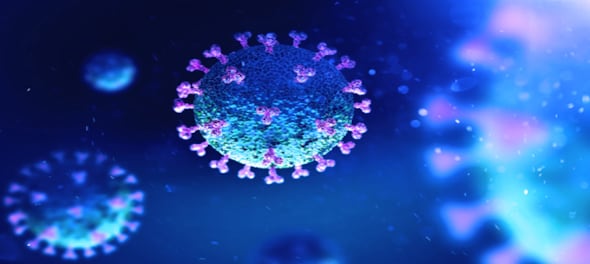
Within nine days, the number of active Covid cases in India exhibited a more than twofold increase, rising from 938 on December 11 to 1,970 on December 19. The government lab forum, Insacog, detected 19 instances of JN.1, a subvariant of Omicron, with Maharashtra reporting one case and Goa 18, reported Times of India.
Interestingly, for the first time since the COVID-19 vaccination drive began on January 16, 2021, zero vaccinations were administered in India on December 19, 2023.
Notably, there were three days when the MoHFW didn't update the daily vaccination number on the website and left the daily number unchanged, but this was not a case of “0” vaccination, which is now being shown on the website.
Incidentally, this is two days after the Health Ministry alerted states about the new variant in India and WHO classified it as a 'variant of interest' yesterday.
“Due to its rapidly increasing spread, WHO is classifying the variant JN.1 as a separate variant of interest (VOI) from the parent lineage BA.2.86,” said a statement from the inter-government body. It was previously considered to be a VOI as a part of Pirola sub-lineages.
The World Health Organization (WHO) classifies a variant as a Variant of Interest (VOI) when it demonstrates a growth advantage compared to other circulating variants. This growth advantage implies that its proportion rises in tandem with an increase in the overall number of cases.
Additionally, a variant can attain VOI status if it is anticipated or confirmed to alter characteristics such as transmissibility, virulence, evasion of antibodies, or susceptibility to therapies and diagnostics.
The Centre on Monday, December 18, issued an advisory to states and Union Territories after the detection of the first case of the JN.1 variant of COVID-19 in India and an upsurge in fresh cases.
Union Health Secretary, Sudhansh Pant, in a letter to states and UTs, sounded an alarm on the imperative need for heightened vigilance. The health secretary underlined that "due to consistent and collaborative actions between Centre and State Governments, we have been able to sustain the trajectory at sustainable low rates".
While on December 20, Mandaviya, announced that mock drills will be conducted quarterly at both the Central and State levels. This decision comes as India witnessed a rise in COVID-19 cases, with 614 new infections reported in the last 24 hours. The increase is attributed to the JN.1 sub-variant
Following the advisory, the Karnataka government has mandated masks for individuals aged 60 and above, those with heart or kidney ailments, and those with cold symptoms due to concerns about the JN.1 subvariant.
Madhya Pradesh has adopted the Centre's guidelines for the new COVID-19 variant JN.1. This comes as some states experience a rise in cases of the viral infection. Yadav visited Hamidia Hospital, the largest government hospital in Bhopal, on Monday night to assess the preparations in place.
The JN.1 sub-variant — first identified in Luxembourg and since spread to several countries — is a descendant of the Pirola variant (BA.2.86).
According to sources, it contains a significant number of unique mutations, particularly in the spike protein, that may contribute to increased infectivity and immune evasion.
However, initial data suggests that updated vaccines and treatments will still offer protection against JN.1 sub-strain, the source stated. This sub-variant's resemblance to earlier sub-strains with distinct spike proteins is also noteworthy.
Most of the changes in the JN.1 sub-variant are found in the spike protein, which likely correlates to increases in infectivity and immune evasion.
Check out our in-depth Market Coverage, Business News & get real-time Stock Market Updates on CNBC-TV18. Also, Watch our channels CNBC-TV18, CNBC Awaaz and CNBC Bajar Live on-the-go!


Gonda Lok Sabha election: BJP's Kirti Vardhan Singh takes on Beni Prasad Verma's granddaughter Shreya
May 19, 2024 10:19 PM
Faizabad Lok Sabha election: Can Ayodhya Ram Temple strengthen BJP's stronghold here?
May 19, 2024 10:16 PM
Amethi Lok Sabha election: Can BJP's Smriti Irani retain the Congress bastion she won in 2019?
May 19, 2024 10:12 PM
Rae Bareli Lok Sabha Election: Can Rahul hold on to this Gandhi family bastion?
May 19, 2024 10:09 PM

